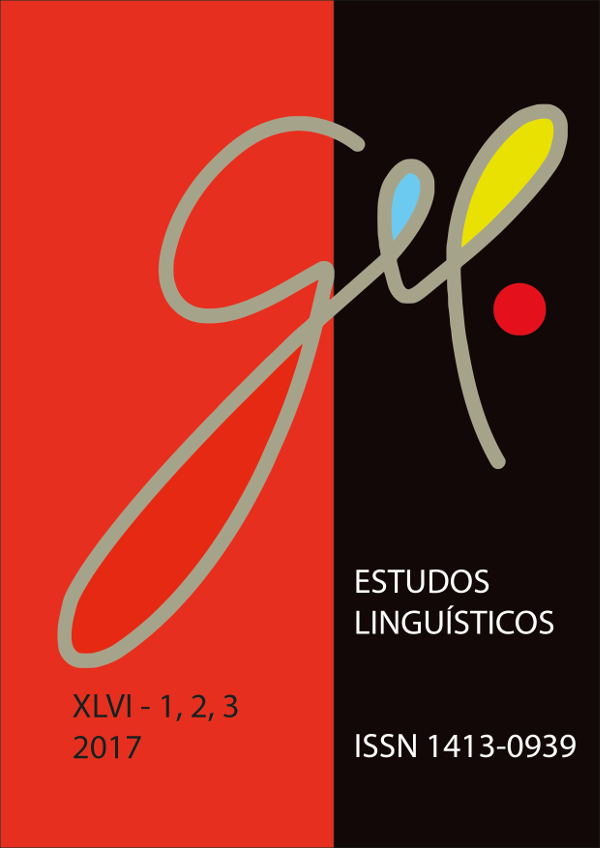Text: a definition search
DOI:
https://doi.org/10.21165/el.v46i3.1726Keywords:
text, context, text definition, text theoriesAbstract
Our purpose is to discuss the various text definitions from the point of view of several authors, since there is not only one. Following the discussion of Enrique Bernardez (1982) from the point of view of text linguistics, we will enumerate the theorists who sometimes tend to pragmatic (Schmidt, Hartmann, Galperin, Fonseca/Fonseca and Kozevniková); sometimes to structuralism (Sakov); sometimes to textema (Agricola); sometimes coalescing linguistic and pragmatic points, linguistic activity and socio-communicative (Isenberg and Vichweger); sometimes to social communicative situation (Hausenblas); sometimes to the situational context (Revzin). Seeing the text is not an immediately given entity, to understand the conditions of production and reception, we were seeking a narrated experience in the work of Leal (1993) Fala maria favela, where the context is crucial for its realization. For this, Silva (2010) points out the context as a "set of circumstances in which you insert a text". Thus, we conclude that the text is a fundamentally communicative language unit, product of human verbal activity, which always has a social character.Downloads
References
AUSTIN, J. L. Quando dizer é fazer. Tradução de Danilo Marcondes de Souza Filho. Porto Alegre: Artes Médica, 1990.
BARTHES, R. O prazer do texto. São Paulo: Perspectiva, 2002.
BERNÁRDEZ, E. Introducción a la lingüística del texto. Madrid: Espasa-Calpe, 1982.
CARRETER, F. L. Diccionario de Términos Filológicos. Madrid: Editorial Gredos, 1953.
DUBOIS, J. et al. Dicionário de Linguística. Tradução de Frederico Pessoa de Barros et al. São Paulo: Cultrix, 1978.
FONSECA, F. I.; FONSECA, J. Pragmática, linguística e ensino de português. Coimbra, Almedina, 1977.
FOUCAMBERT, J. A leitura em questão. Porto Alegre: Artes Médicas, 1994.
ISENBERG, H. Riflessioni sulla teoria del testo. In: CONTE, M.-E. La lingüística testuale. Milão: Feltrinelli Economica, 1977. p. 66-85.
KERBRAT-ORECCHIONI, C. L'énonciation de la subjectivité dans le langage. Paris: Armand Colin, 1980.
LEAL, A. Fala maria favela: uma experiência criativa de alfabetização. 12. ed. São Paulo: Ática, 1993.
LERNER, D. Ler e escrever na escola: o real, o possível e o necessário. Porto Alegre: Artmed, 2002.
PECHÊUX, M. O discurso: estrutura ou acontecimento. Tradução de Eni Pulcinelli Orlandi. Campinas: Pontes, 1997.
PETÖFI, J. S. Text-grammars, text-theory and the theory of literature. Poetics: Journal of Empirical Research on Literature, the Media and the Arts, v. 2, Issue 3, p. 36-76, 1973.
REVZIN, I. I. On the continuous nature of the poetic semantics. Poetics: Journal of Empirical Research on Literature, the Media and the Arts, v. 3, Issue 2, p. 21-26, 1974.
ROSENTAL, D. E.; TELENKOVA, M. A. Slovar Trudnostei Russkogo Yazika (Dictionary of Difficult Words in the Russian Language). Moskow: Prosveshenie, 1984.
SCHMIDT, S. J. Linguística e teoria do texto. São Paulo: Pioneira, 1978.
SEARLE, J. R. Os actos de fala. Coimbra: Almedina, 1984.
SILVA, V. M. de A. e. As humanidades, os estudos culturais, o ensino da literatura e a política da língua portuguesa. Coimbra: Almedina, 2010.
TODOROV, T. O texto. In: DUCROT, O.; TODOROV, T. Dicionário enciclopédico das ciências da linguagem. São Paulo: Perspectiva, 1998, p. 267-271.
VAN DIJK, T. A. Théorie de la littérature. Paris: Picard, 1981.



